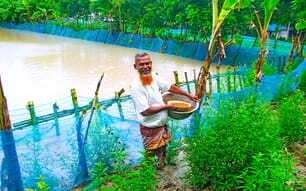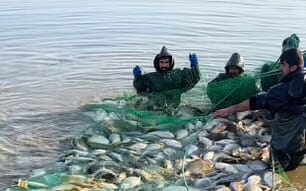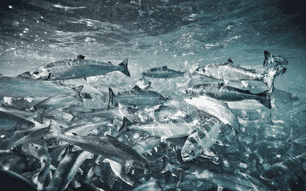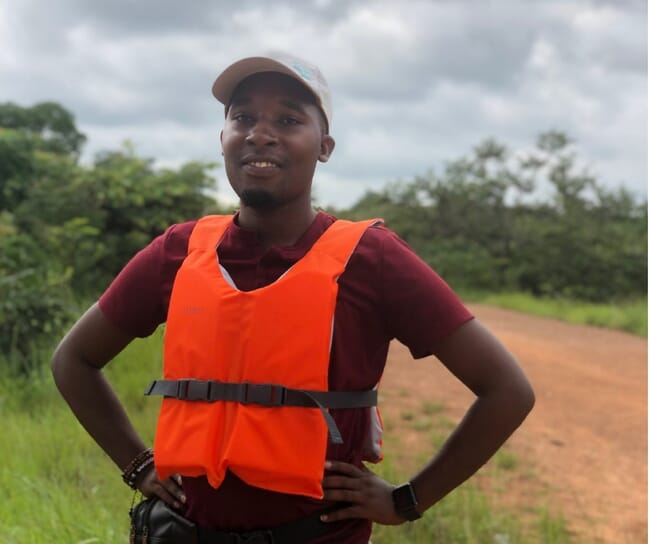
Orishaba wants to develop Uganda's aquaculture sector and ensure it remains sustainable
He was recently named as one of the 10 most promising people under 40 years old in the entire aquaculture world by Hatchery International.
What inspired you to pursue a career in aquaculture?
I initially wanted to be a doctor, but the scarcity of fish in western Uganda inspired me to develop the local aquaculture industry. Studying fisheries and aquaculture at Makerere University with 30 students gave me the ambition to become one of the country’s outstanding fish farmers. I am currently focused on reducing carbon footprints and the environmental footprint of aquaculture operators, via my consultancy group – too many farmers release their pond water into lakes untreated and overfeed their cages, causing a range of problems.
What have been the highlights of your career to date?
In 2020 while I was working at Yalelo Uganda, our tilapia fingerlings' survival rates slumped after being hit by a bacterial infection. However, we managed to change several practices and procedures. Plus, I developed a well-detailed biosecurity protocol for the hatchery and by the time I left in January 2022 the fingerlings’ survival rate at the hatchery was 80 percent – both for the sex-reversal and post-sex-reversal stages. This achievement was followed by a FCR of 1.0 – the hatchery’s best – which I’m very proud of.
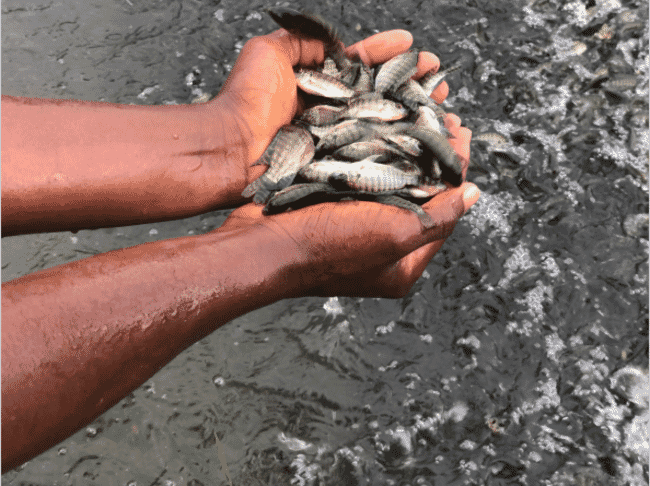
Orishaba has successfully managed multiple tilapia hatcheries
This experience has allowed me to overcome many hatchery challenges and develop sustainable solutions for other fish farms. Currently in Ivory Coast I have had a lot of success in tilapia hatcheries in terms of fish survival and my expertise and love for new technologies has improved fingerling health and growth rates.
What was your reaction to being recognised as one of the 10 most exciting young farmers in the world by Hatchery International?
I was extremely honoured to be one of the recipients of the Hatchery International Top 10 Under 40 Awards. Given my humble background in a small village in Uganda East of Africa, it took a lot of sacrifices, resilience, and hard work to reach here, but all this has only strengthened me to be the person I am today. The award inspires me to keep working hard and impacting many through my career as a hatchery professional.
What does your current role entail?
As a hatchery expert, managing three tilapia hatchery sites daily, my target is to produce 3 million tilapia fingerlings per month. My key role is to maintain the quality of the fingerlings produced, so I must make sure that we have the best biosecurity protocols, effluent discharge protocols plus strict adherence to standard operating procedures.
What are your biggest concerns at work?
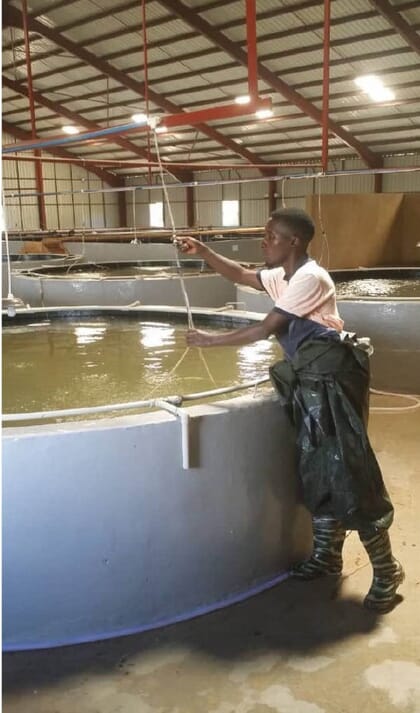
Orishaba is hoping to produce 3 million tilapia fingerlings per month across his three hatchery sites
As Cote d’Ivoire is a French-speaking country I need to use translators to communicate at times, which makes me miss direct verbal interaction, but I have now embarked on learning French online and soon will be a pro.
Secondly, I have several key performance indicators in the hatchery, relating the survival rate, FCR and growth rate. Accomplishing these can be challenging in changing circumstances.
What advice would you give to fellow tilapia hatchery managers?
Network with fellow hatchery professionals, as aquaculture requires that you keep learning and discovering new and efficient technologies. Ask someone to be your mentor so you can get years of experience and knowledge the fastest way. Be flexible to be successful. Make everything a team effort, as that is the best road to success.
What would you like to be doing in 10 years time?
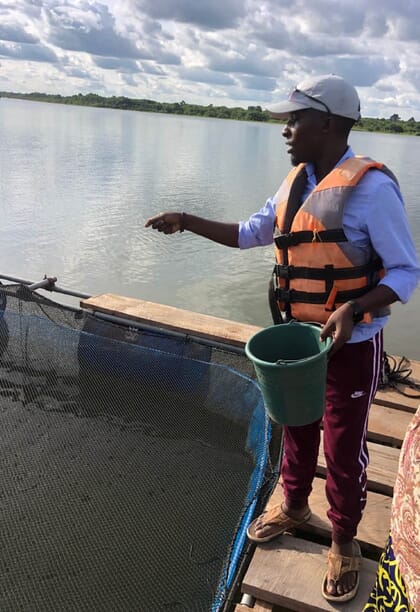
Orishaba's consultancy is helping spur the adoption of aquatech across the region
I have started an aquaculture consultancy group called Kachotera Aquatics International which is aiming at helping local fish farmers with expertise and knowledge to get successful results with the best technology. In 10 years we should have offices across East Africa, helping the number of fish farming projects to increase and organising small-scale fish farmers into self-sustaining groups.
What are the main hurdles for aquaculture in Cote d’Ivoire to overcome before it can fulfil its true potential?
Firstly, the government needs to prioritise and fund the sector to empower local farmers.
Secondly there are limited freshwater bodies in the country and its high time for the country to embrace high-tech farming methods like RAS.
Thirdly, the lack of proper training for fish farmers has limited the sector’s growth. It’s time for the country to collaborate with experts in fish farming to help overcome challenges, such as bacterial infections, poor quality genetics and the scarcity of quality, affordable fish feed.


